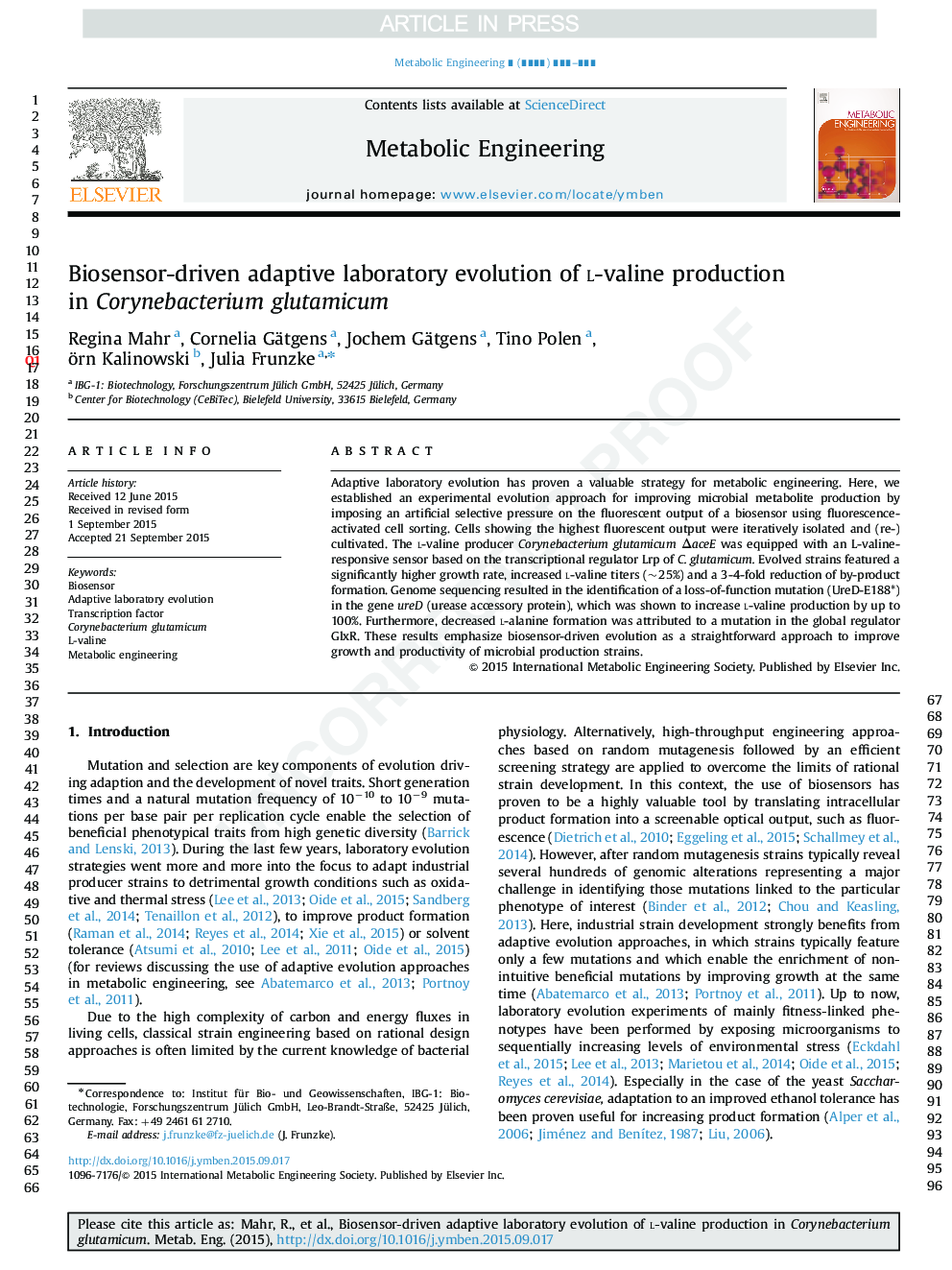| Article ID | Journal | Published Year | Pages | File Type |
|---|---|---|---|---|
| 6494319 | Metabolic Engineering | 2015 | 11 Pages |
Abstract
Adaptive laboratory evolution has proven a valuable strategy for metabolic engineering. Here, we established an experimental evolution approach for improving microbial metabolite production by imposing an artificial selective pressure on the fluorescent output of a biosensor using fluorescence-activated cell sorting. Cells showing the highest fluorescent output were iteratively isolated and (re-)cultivated. The l-valine producer Corynebacterium glutamicum ÎaceE was equipped with an L-valine-responsive sensor based on the transcriptional regulator Lrp of C. glutamicum. Evolved strains featured a significantly higher growth rate, increased l-valine titers (~25%) and a 3-4-fold reduction of by-product formation. Genome sequencing resulted in the identification of a loss-of-function mutation (UreD-E188*) in the gene ureD (urease accessory protein), which was shown to increase l-valine production by up to 100%. Furthermore, decreased l-alanine formation was attributed to a mutation in the global regulator GlxR. These results emphasize biosensor-driven evolution as a straightforward approach to improve growth and productivity of microbial production strains.
Keywords
Related Topics
Physical Sciences and Engineering
Chemical Engineering
Bioengineering
Authors
Regina Mahr, Cornelia Gätgens, Jochem Gätgens, Tino Polen, Jörn Kalinowski, Julia Frunzke,
